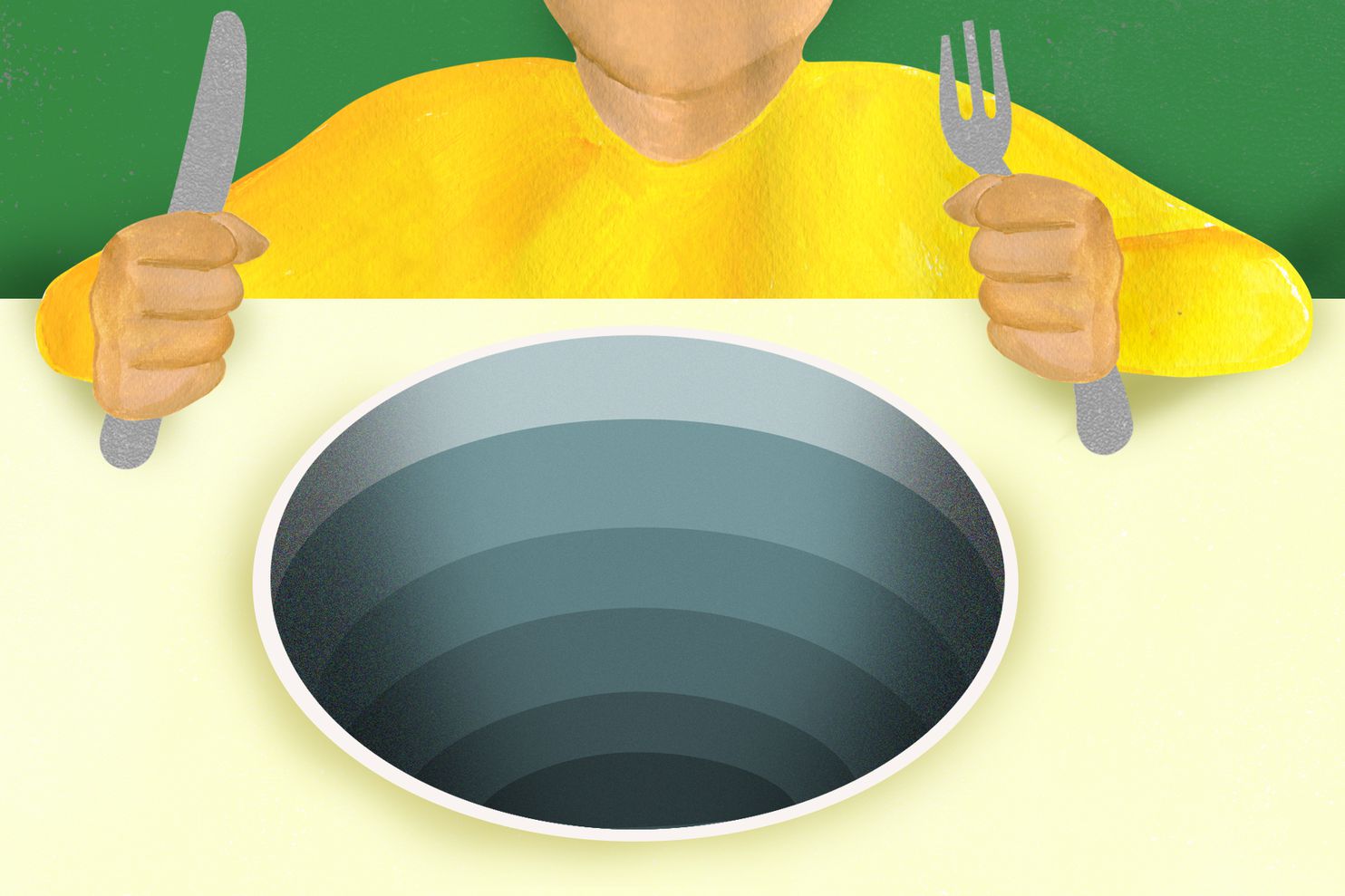Haunted by hunger fears since childhood, I finally stopped overbuying food when the pandemic hit

Qian Julie Wang is the author of the forthcoming book, “Beautiful Country: A Memoir of an Undocumented Childhood.”
Last spring, for the first time in my adult life, I managed to restrain my compulsive food-buying. I remember the day vividly: As I entered the grocery store around the corner from my Brooklyn apartment, wearing a mask because the first covid-19 wave was hitting New York, my gaze fell on a pyramid of shiny red apples. Earlier in the day, I had read reports about worsening unemployment amid the pandemic and about rising alarms over food-supply disruptions around the world. People were panic-buying, cleaning out grocery store shelves.
Reading about others’ poverty and hunger fears took me back to my own childhood. Though decades in the past, it still followed me everywhere I went.
At the end of every elementary school day, I would follow one of my classmates out of our classroom and down the stairs. On the first floor of our school, just outside the cafeteria, stood a vending machine that sold frozen treats. My classmate, who seemed to have a new shiny dress just about every month, preferred the Good Humor Strawberry Shortcake bar.
I can still hear the coins cascading into the receptacle, the buttons beeping, the machine’s mechanism stirring. At the memory of these sounds, I travel back to my station at the corner by the vending machine, where I stood salivating as the girl of the shiny dresses ripped the wrapper and bit into the creamy bar covered in red, pink and white dots. I hated and revered her, that girl with the pretty snack, with her careless abundance.
Beginning in second grade, I went to school hungry every day during the years that my parents and I lived undocumented in New York City. I sat in class, gazing at a chalkboard that looked like it had been dusted with powdered sugar. When lunchtime came, I joined the long line for the free school lunch, watching as clean kids in nice clothes unwrapped their homemade lunches. My brain barely registered the taste of the inevitable brown-sludge sloppy joe before, all too soon, it was gone.
In the United States, we tend to think of hunger and food insecurity as the problems of poor, faraway countries. But there’s a humanitarian crisis now under our own roof. According to Feeding America, of the 50 million people in the United States who are likely to experience food insecurity during the pandemic, 17 million are children. A headline from just last month said: “US Food Banks Overwhelmed with Demand During Pandemic.”
Undocumented families sit at the epicenter of this hunger crisis. They are ineligible for the bulk of federal aid and may be leery of local government aid efforts. In my experience, fear of deportation always outweighed the need for food. And for anyone who has ever tried to concentrate on an empty stomach, it is clear that hungry children face steep odds of obtaining a good education and escaping poverty. Those who are lucky enough find a way out, as I did, may still be haunted by hunger. Once you have tasted poverty, it remains forever on your tongue.
As a young law school student, I found that my hunger fear transformed into a habit of overbuying food. I would buy a dozen apples when I already had half a dozen in my room, hidden from my roommate and growing rotten. After graduation, I used my paychecks to build a fortress of food. It was as if I somehow believed that the surplus would shield me from worrying about ever being hungry again — as if anything ever could.
And then came the moment when the fear broke, as I stood before the gleaming pyramid of apples — apples again! — last spring. Yes, my childhood might always be there, gnawing on my insides, but now I had a choice. I could stockpile more apples than I needed, in search of that ever-elusive security, or I could leave them for someone else to buy; instead of continuing to overbuy food, I could save my funds for a donation to the hungry. Then I realized: Compared with so many others, I was now the girl in the shiny new dress.
My classmate in elementary school never knew that I hungrily watched her at the vending machine. If she had, I have no doubt now that she would have happily shared her food. We all know about the hunger in the United States now. Everyone of comfortable means has the power to share. Donate that money you’ve saved on vacations not taken during the pandemic. Contribute groceries to a local food bank. And call or write your elected officials — local, state and federal — to hold them accountable for ensuring that no child, documented or otherwise, serves a life sentence of hunger.
Read more:
José Andrés: What the pandemic can teach us about treating hunger
José Andrés: Our people are hungry. We need a leader who will feed them.
The Post’s View: Congress must prioritize food assistance as hunger worsens
Catherine Rampell: The next threat: Hunger in America
George Conway: What I really believe






